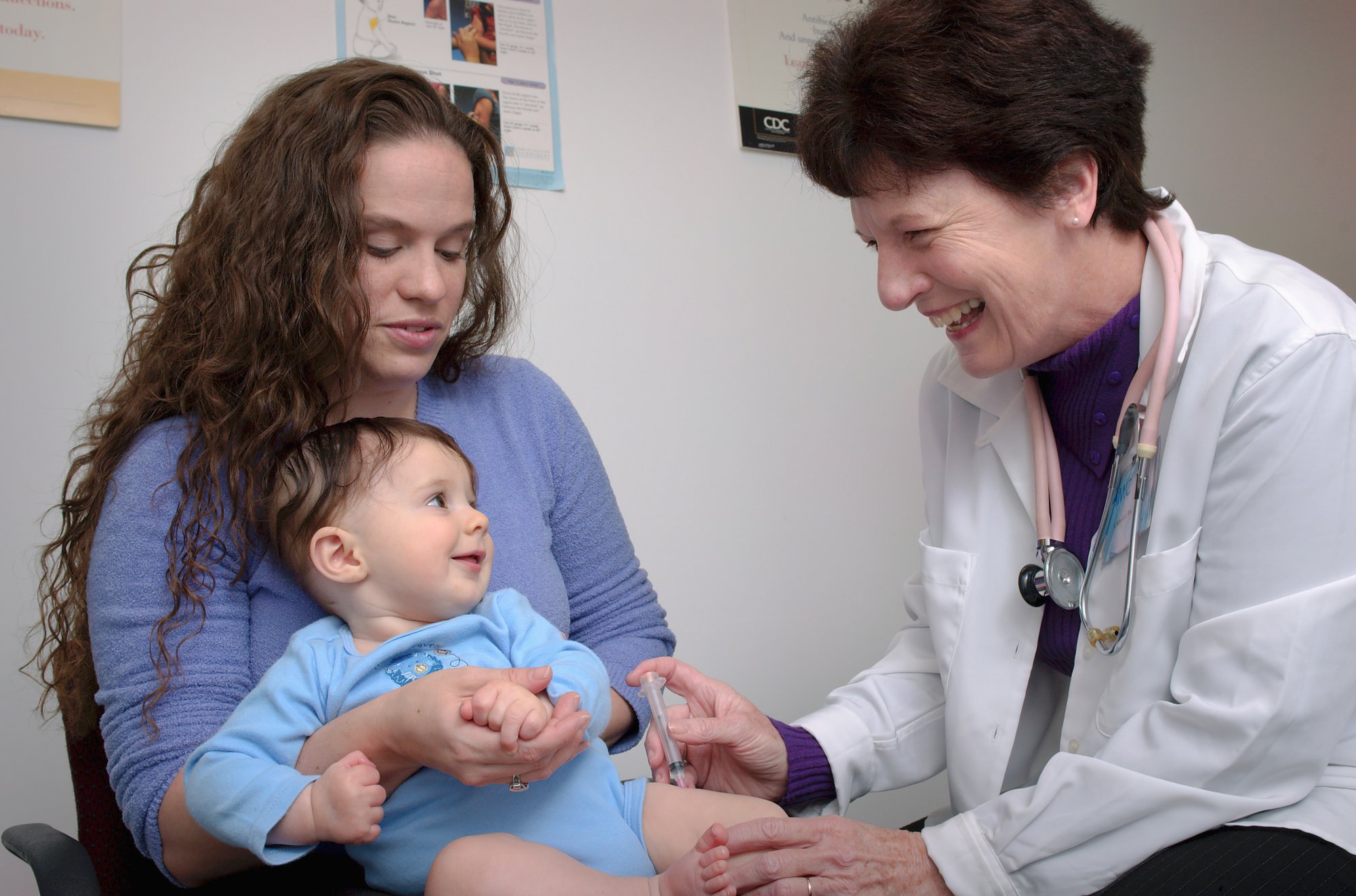What Is an FNP (Family Nurse Practitioner): Scope of Practice, Salary, Job Outlook, and How to Become One

The role of a family nurse practitioner (FNP) involves working with different populations and caring for patients across their lifespans. FNPs place utmost importance on building and nurturing long-lasting relationships with their patients, serving as their clients’ primary care providers.
To help you decide if the role is right for you, we will closely examine the role of the family nurse practitioner. You will learn all the essentials, including how to become an FNP, your salary potential, your prospective job outlook, and more.
What Is an FNP (Family Nurse Practitioner)?
A Family Nurse Practitioner (FNP) is an Advanced Practice Registered Nurse (APRN) specializing in family medicine who provides healthcare services to people of all ages, from infants to adults to seniors. Usually, FNPs are the primary healthcare providers for individuals from underserved communities and work with people from all backgrounds.
The role is extensively about delivering family-focused care, with particular attention dedicated to health promotion and education. Because FNPs are often the primary care providers for the family, they usually have to diagnose and treat different conditions and ailments.

Why Should You Consider a Career as an FNP?
Becoming a family nurse practitioner does require more dedication, time, and monetary investment than other nursing paths. However, it’s also one of the most rewarding nursing careers.
Here are the main reasons why you should consider pursuing a career as a family nurse practitioner:
- You build genuine, long-lasting relationships with patients and their families, which can often span decades and generations.
- You will be a deeply valued central figure in the community through your role and support.
- The job outlook for FNPs is only getting better with increased year-to-year demand.
- The salaries will not disappoint. The average national yearly pay for FNPs surpasses that of other nurse practitioners by $3,000.
- You will practice with significant autonomy in your workplace, with reduced oversight from superiors and other nursing personnel. You can use the role to develop leadership skills that will eventually prove useful in your career.
- The FNP role includes additional non-salary benefits, including paid time off, vacations, continuing education programs, and tuition reimbursement.
- Overall, if you begin a family nurse practitioner career, you also have the advantage of workplace stability from occupational and financial points of view.
What Qualities Do You Need to Become a Family Nurse Practitioner?
While the FNP role can bring more career and financial fulfillment than other nursing positions, it also comes with more requirements. Here are the main qualities you need to become a successful family nurse practitioner:
- Expertise in multiple nursing specialties – Your chosen profession has a comprehensive scope of practice. Instead of focusing on excelling in a specific nursing specialty, you'll always need to be on top of – and an expert at – multiple nursing specialties.
- A higher degree of accountability – With greater autonomy comes greater responsibility. You can provide diagnosis, treat, and prescribe medication, but you must be all the more vigilant and responsible. You don’t want to be liable for errors or nursing mistakes.
- Community-directed attitude – Because they continuously interact and care for the same patients, family nurse practitioners develop tight-knit, close, and long-term relationships with people under their care. So, if creating strong connections is central to you as a nursing professional, this role will fit you like a glove.
Scope of Practice: What Does a Family Nurse Practitioner Do?
Family nurse practitioners are vital in providing comprehensive health services to individuals of all ages, especially in primary care. They diagnose and treat acute and chronic conditions, perform physical exams, prescribe medications, and develop treatment plans. FNPs emphasize preventive care and educate patients on lifestyle modifications, disease prevention, and overall wellness.
The scope of practice for FNPs varies by state, with some granting full practice authority and allowing family nurse practitioners to diagnose and prescribe independently. In contrast, others require them to collaborate with physicians, doctors, or other healthcare professionals. FNPs work in diverse settings, including private practices, community health centers, hospitals, and urgent care clinics. They also manage family health, addressing concerns from pediatrics to geriatrics, ensuring continuity of care throughout a patient’s life.
FNP Duties & Responsibilities
The FNP job is mainly patient-centric, encompassing a broad set of duties and responsibilities, including, but not limited to:
- Conduct routine physical examinations. Complete head-to-toe assessments are crucial to assessing a patient’s state before proceeding to other parts of the nursing process.
- Providing diagnosis of a patient after completing the assessment stage.
- Maintaining thorough records of every patient’s medical history.
- Developing and following through with care plans
- Ordering lab and other diagnostic tests
- Interpreting the results of labs and tests
- Prescribing medication and other therapies on a need basis
- Monitoring a patient’s response to medication and adjusting treatment plans accordingly.
- Meeting the primary healthcare needs of all the patients who walk through the door of their practice.
- Monitoring patients with chronic conditions like diabetes.
- Working collaboratively with other healthcare professionals. Even though you will work independently for the most part, you can consult with another medical professional to develop the best care plans for your patient.
- Providing referrals when the medical situation calls for it.
- Counseling patients and their family members about health concerns.
- Promoting public health through social and environmental interventions and actions.

FNP vs. NP: What Is the Difference?
The main difference is that family nurse practitioners belong to a subspecialty of the Nurse Practitioner role. Consequently, the two differ in their scopes of practice, areas of specialty, and the educational paths required to practice:
- Specialization: NPs can have a broader array of specialties, including women’s health care, pediatric nursing, gerontology and geriatric nursing, psychiatric and mental health care, and neonatal nursing practice. FNPs specialize in family medicine and provide care to every kind of patient population and in various medical situations.
- Education: All NPs need to earn a master’s in nursing, but the MSN FNP program proves broader and more flexible in scope and preparation. Degrees for other specializations are narrower and prepare learners for a specific nursing role. For instance, completing an MSN PMHNP will strictly limit the scope of practice to psychiatry and mental health. Similarly, an MSN Ed is designed to prepare graduates for educational roles as nurse educators.
- Certification: The certification of NPs varies by specialty and can include accreditation from the ACNP, PNP, or PMHNP. FNPs need to earn their certification from the AANP or the ANCC.
- Nursing role: All family nurse practitioners are NPs, but not the other way around. Still, FNPs account for the majority of all nurse practitioners. Data from the American Association of Nurse Practitioners (AANP) indicated that out of the current 385,000 NPs licensed in the US, almost 70.3% are certified as FNPs.
- Patient focus: Nurse practitioners' patient focus can vary depending on their specialization, while FNPs focus on treating individuals and families throughout their lifespans.
- Work settings: Nurse practitioners can work in various settings, including hospitals, clinics, specialty practices, and emergency departments, while FNPs are concentrated in primary care clinics, private practices, and community care centers.
FNP vs. Doctor in Medicine (MD)
Family nurse practitioners often act as the primary care provider for their patients, a role they share in common with physicians. However, they differ in overall responsibility, preparation, and level of licensure.
Here are the main differences between the two roles and how they affect the day-to-day work experience of each:
- Licensing boards: Doctors earn their licensure from a medical board, while FNPs become licensed through a nursing board. This can result in a higher degree of preparation for MDs.
- Period of preparation: Doctors spend more time training for the role. The average time to become a fully licensed doctor in the US is 10 to 14 years, compared to the 2-to-10-year time frame for becoming an FNP.
- Workplace autonomy: Family nurse practitioners must cooperate with physicians, doctors, or other medical staff.
- Writing prescriptions: FNPs also hold prescriptive authority for controlled substances in all 50 states and DC. Still, they can only prescribe medication if they have an established prescriber-patient relationship and have previously consulted the patient's medical history.
- Accessibility: FNPs are generally the first type of primary care provider patients go to, as physicians
are in perpetual shortage at a national level. There are approximately 269,500 family
nurse practitioners, compared to the 100,940 currently licensed family medicine Physicians,
the closest doctoral role. This means that patients can easily book an appointment
with an FNP while waiting a considerable time to see an MD.

Career Options: Where Can FNPs Work?
Family nurse practitioners work in a wide variety of environments. Some of the most popular options for FNPs include:
- Private practice
- Clinics
- Community centers
- Physician’s offices
- Hospitals
- Outpatient clinics
- Telehealth centers
You should always review the job placement demand in your area to get an image of your future potential workplace. However, considering the projected increase of new job openings for FNPs and the role's versatility, you are sure to find placement quickly once certified.

How to Become a Family Nurse Practitioner?
If you aim to become a family nurse practitioner, there are specific educational and certification paths that you can pursue. These depend on your current preparation and whether you are a licensed medical professional, but also on whether you wish to study full- or part-time and can attend your program in person or online.
There is no national standard for becoming a family nurse practitioner, with each state freely regulating the process, including setting requirements, the licensure process, and the scope of practice. However, there is a general academic path that you can follow, regardless of the state you reside in and your current status.
Generally, becoming an FNP can take from 8 to 10 years if you are starting from zero. To limit your time spent in school and ensure that you are achieving your career goals as effectively as possible, we have prepared a tutorial that you can follow to learn how to become a family nurse practitioner:
1. Complete an Accredited Nursing Program
Whether you pursue a family nurse practitioner role early or want to advance your career, the first step in your journey is to enroll in a nursing program that will qualify you to become an RN. Although you can do so by earning an associate degree in nursing or a bachelor's, getting a BSN is an integral part of becoming an FNP.
Here are the possible educational paths you can pursue with zero nursing experience:
- Enroll in a 3-to-4-year Bachelor’s Degree in Nursing (BSN) program.
- Pursue a 2-year Associate’s Degree in Nursing (ADN). With this degree, you can enter the healthcare environment earlier and see if it’s the job for you. Once you get your ADN (or ASN), you can obtain your BSN degree through either a BSN program or a 1-year bridge RN-to-BSN program.
If you need help deciding which path to take to become an RN, our ADN vs. BSN comparison will help you decide.
Nightingale College’s BSN Program is comprehensive and follows a blended distance format, with online didactic instruction and on-ground field learning. It takes approximately 32 months to complete. Also, if you’ve started your nursing career as a licensed practical nurse, you’ll be happy to hear that our program offers advanced placement for LPNs aspiring to become RNs.
Take the first step toward becoming a family nurse practitioner! Enroll in our BSN Program today!
2. Pass the NCLEX-RN
Once you complete your program of choice, you become eligible to attend the NCLEX-RN. The five-hour exam will test your skills and knowledge to be a registered nurse, which both an ADN and BSN program should have prepared you for.
Passing it gives you the license to work as an RN in any admissible healthcare environment.
3. Gain Experience
Now that you hold your RN licensure, you can move on to the next step: working as a registered nurse to accumulate first-hand nursing experience.
Practicing as an RN will help you sharpen your skills and become a better professional. An FNP career comes with great responsibility, so gaining clinical experience as a registered nurse is crucial. Going through nursing school is a must, but so is applying all the theoretical knowledge to real-life scenarios.
You need at least two to four years of bedside experience before becoming a family nurse practitioner.
4. Earn an FNP Master’s Degree
The Master’s Degree in Nursing is the minimum educational level that enables you to practice as a family nurse practitioner. For the most part, Master’s programs take around two years to complete and require prospective learners to have completed a Bachelor’s Degree in nursing. Find out how to get a master’s in nursing and start your career right.
Keep in mind that not any master’s in nursing will do. You must find a program with an FNP specialty. While it will have some core curriculum standards for all MSN programs, it also provides FNP-specific courses and preparation in patient-provider relationship management and patient-centered care.
Nightingale College offers an excellent CCNE-accredited MSN FNP Program explicitly designed for aspiring learners who aim to become family nurse practitioners. We strongly believe that quality education is the foundation of a successful career, and our Nightingale College programs deliver on that belief. The FNP Master’s program combines online instruction, one in-person seminar, and a preceptorship experience to provide quality education in the most accessible manner within a concise 24-month program.
Enroll in our MSN FNP Program and become a family nurse practitioner!
5. Get Certified
Although certification is not mandatory for FPNs, many states will consider it a requirement for licensure. Therefore, it is strongly recommended that family nurse practitioners pursue this credential.
Being certified comes with numerous benefits for nurses:
- It gives you a competitive advantage in the field.
- It increases your confidence in your practice, making you a better nurse.
- It solidifies your professional reputation and earns the respect of your peers.
Read more about why you should consider getting certified.
The Family Nurse Practitioner Certification (FNP-BC) offered by the American Nursing Credentialing Center (ANCC) is the recommended option for FNPs as far as certification goes. To obtain it, you need to meet the following eligibility requirements:
- Hold a current, active RN license.
- Hold a Master’s, post-graduate certificate, or a Doctor of Nursing Practice (DNP) degree from an accredited family nurse practitioner program.
- Complete comprehensive graduate-level courses in advanced physiology/pathophysiology, health assessment, and pharmacology.
The certification is valid for five years. You can apply for renewal following its expiry, but bear in mind that you need to fulfill some criteria, some of which are also state-dependent. However, you also have general requirements, such as earning a qualifying degree or completing at least 500 faculty-supervised clinical hours. The ANCC constantly updates its requirements and standards, so you should continuously review the current criteria. For instance, since 2024, the ANCC screens for test out/course by exam coursework, requiring applicants to complete at least three comprehensive, graduate-level APRN core courses for eligibility.
6. Keep Up with Your Continuing Education Requirements for FNPs
A career in nursing requires you to be a life-long learner. So, continuing education will be part of your experience as a family nurse practitioner, as you may need to fulfill specific requirements to renew your nursing license, nursing certification, or APRN certification. Continuing education is not a chore or another step to cross off the list. It is a great way to ensure you always stay up-to-date with the latest developments in your field. In the end, it makes you a better nurse. And everyone stands to benefit from that.
You should always check with your state board and credentialing center about the continuing education requirements to keep your RN license and certification active.
7. Reap the Benefits of Your Hard Work
Once you become licensed and certified as an FNP, you can reap the rewards of your new position.
An FNP role gives you access to many nursing career advancement opportunities, allowing you to further your professional journey. Beyond additional certifications extending your duties for your position, you can pursue administrative positions or earn doctoral-level degrees, such as a Doctor of Nursing Practice or a Ph.D. in Nursing.
What Areas Can a Family Nurse Practitioner Specialize In?
The most popular directions of specialization for family nurse practitioners are family, primary, and emergency care, but they can include earning certifications for neonatal, psychiatric, or women’s health.
Here is a list of other frequent career advancement directions for a family nurse practitioner:
- Dermatology nursing
- Cardiology and cardiac nursing
- Oncology nursing
- Nephrology
- Orthopedics
- Palliative care
If you aim to advance your FNP career through specializing, you need to attend post-master certification programs.

How Much Does a Family Nurse Practitioner Make: FNP Salary in 2025
The national average salary for FNPs as of January 2025 is $127,976 per year or $62 per hour, according to job aggregator ZipRecruiter. Washington ($144,945), the District of Columbia ($144,616), and Pennsylvania ($140,010) are the top three highest-paying states for family nurse practitioners.
Read our nursing salary by state study to discover how family nurse practitioner salaries compare to other healthcare professions.
Family Nurse Practitioner Job Outlook and Demand
The nurse practitioner occupation is the fastest-growing occupation in the country, with FNPs representing a majority among NPs (70%). According to the BLS, the overall employment of NPs is projected to increase by 46% from 2023 to 2033, surpassing the 40% of MSN-level nursing jobs, the 9% increase for all healthcare diagnosing and treating practitioners, and the 4% growth for all occupations.
Nurse Practitioners are expected to have 135,500 new job openings projected by 2033, with a total of 427,900 NP positions nationwide. With family nurse practitioners making up 70% of the NP population, we can estimate an increase of 94,850 new FNP openings and a total of 299,530 FNP positions by 2033.
There are several reasons behind this monumental FNP job outlook:
- Given their advanced training, FNPs perform many of the same services as physicians. However, they are becoming more widely recognized as a source of primary healthcare. Therefore, FNPs will be increasingly used in team-based care models, particularly in hospitals, physician offices, clinics, and other ambulatory care settings, where patients require preventive and primary care.
- The aging of the US population increases the need for healthcare professionals. As baby boomers age, they will experience ailments and complex conditions that require medical care, and FNPs will be some of the primary healthcare professionals keeping them healthy.
In this context, US News ranks Nurse Practitioners as #1 among the Best Jobs in the US in 2025. With its excellent outlook and fast growth, this profession is worthy of consideration for aspiring nurses.

Ready to take your skills to the next level and become an FNP?
With a profession as versatile as nursing, it’s easy for prospective RNs to choose the aspects of nursing practice they value the most and pursue nursing jobs that bring those aspects to the forefront.
Some enjoy helping as many patients as possible on a rolling basis and finding the ER nursing that suits them best. Other RNs prefer working with babies or expectant mothers and find careers in labor and delivery nursing or the neonatal unit most beneficial. If you prefer controlled environments and significant autonomy, consider a career as a nurse anesthetist.
But if you are looking for a nursing role that grants you autonomy, ensures genuine connections with your patients, and is financially rewarding, becoming a family nurse practitioner is your best option. And we can help you get there!
Nightingale College’s MSN FNP Program will prepare you to be the best-certified family nurse practitioner with the maximum flexibility and accessibility possible for a CCNE-certified learning path. By attending online instruction classes, the in-person seminar, and the preceptorship experiences included in the program, you can receive the necessary credentials to work as a family nurse practitioner in just 24 months.
Enroll in the MSN FNP Program at Nightingale College and advance your career!
Family Nurse Practitioner FAQs
What Education Is Required to Be a Nurse Practitioner?
The lowest degree required to become a family nurse practitioner is a Master of Science in Nursing. However, you should also enroll in a specific MSN FNP path to ensure that you receive all the necessary preparation to deal with the day-to-day challenges of the FNP role. While not mandatory, it is also recommended that you earn your FNP certification from accredited bodies, such as the American Nursing Credentialing Center (ANCC), as most states will require it for licensure.
How Long Does It Take to Become a Family Nurse Practitioner?
Depending on your current level of certification and work experience, becoming a family nurse practitioner can take 2 to 10 years.
- If you are starting from zero, you must attend a 3-to-4-year BSN program, pass the NCLEX-RN, accumulate between 2 and 4 years of bedside experience, and finally complete the 2-year MSN FNP program. This would take you from 7 to 10 years.
- If you have previously earned an ADN, you should pursue a 1-year RN-to-BSN path, accumulate the necessary work experience, and earn your Master’s degree. The total formative period for this path would amount to 5 to 7 years.
- If you already have a BSN degree and some bedside experience, you need only complete a two-year MSN FNP program to become certified.
Multiple educational paths may apply to your specific context. Read our article on how long nursing school is, depending on your chosen route.
How Long Do You Have to Be an RN Before Becoming an FNP?
Once you are a certified RN, you must accumulate between 2 and 4 years of bedside experience to be eligible for most Master’s programs. However, if you are an ADN-prepared registered nurse, you must earn your BSN through an accelerated RN-to-BSN track, which can add an extra year to your wait.
Then, you only need to complete the 2-year MSN FNP program and be ready to apply for a job. So, the overall waiting period for an RN to become an FNP can range from only 2 years to 7 years, depending on your current education and experience.
What Does the Day in the Life of a Family Nurse Practitioner Look Like?
Considering the wide range of responsibilities required of an FNP, no workday will resemble another. You will have to attend to a varied patient pool, ranging in age and background. Additionally, you will provide aid and assistance for a broad spectrum of ailments and conditions. Additionally, every day in the life of a family nurse practitioner goes towards building a better relationship with your recurring patients, their families, and your community. In other words, the FNP work experience can be dynamic and rewarding.
Can an FNP Work in a Hospital?
Yes, hospitals are some of the most frequent work environments for family nurse practitioners, especially given the shortage of doctors of physicians and an FNP's potential to fill in for their role.
Can Family Nurse Practitioners Work in Emergency Settings?
While an FNP can fulfill some duties in an ER environment, you usually need specific training and accreditation for such a setting. Fortunately, ER nursing is one popular specialization you can pursue once you complete your FNP educational path.
What’s the Difference Between a Physician’s Assistant and a Family Nurse Practitioner?
The difference between a family nurse practitioner and a physician’s assistant is based on the training models each follows. FNPs follow a nursing model, while PAs use the medical model. Consequently, family nurse practitioners (and NPs in general) adopt a patient-centered approach in testing, diagnosis, and treatment instead of the disease-focused medical model. As an FNP, you must develop positive relationships with long-term patients and the community.

